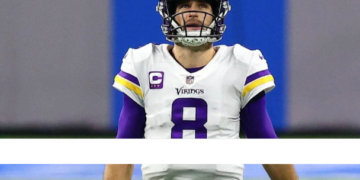Sport production is a dynamic world where excitement meets creativity. From the thrill of live broadcasts to the meticulous planning behind-the-scenes, every element plays a crucial role in delivering unforgettable experiences to fans. But have you ever wondered who crafts the narrative that guides these productions? This brings us to an intriguing question: Does a director write a script in sport production? As we delve into this topic, we’ll explore not just the responsibilities of directors but also how scripting fits into the fast-paced environment of sports events. Whether you’re an aspiring filmmaker or simply curious about what goes on behind those cameras, join us as we uncover the layers of sport production and its storytelling intricacies.
The role of a director in sport production
The director plays a pivotal role in sport production. They are the creative force behind live broadcasts, ensuring every moment is captured with precision.
From orchestrating camera angles to guiding commentary, the director must think on their feet. They coordinate with producers, technicians, and talent to create a cohesive viewing experience.
Timing is crucial; they need to anticipate key moments like goals or big plays. It’s about balancing spontaneity with structure.
Moreover, a director influences the pacing of the show. Their decisions can elevate an ordinary game into something memorable for viewers at home.
Collaboration is essential too—directors often work closely with analysts and commentators to enhance storytelling during games. This synergy transforms mere statistics into engaging narratives that captivate audiences.
A successful sports production hinges significantly on the vision and leadership of its director.
Writing a script for sport production
Writing a script for sport production is a unique challenge. It requires an understanding of the event, the audience, and the narrative that will unfold during the game or match.
A well-crafted script sets the tone for coverage. It outlines key moments to highlight, transitions between segments, and any special features to include. This ensures smooth storytelling while keeping viewers engaged.
Directors often collaborate with producers and commentators when scripting. Their insights enhance clarity and focus on pivotal moments in sports.
Moreover, scripts must remain flexible. Live events are unpredictable; unexpected plays or injuries can change everything in an instant.
Writing a compelling script involves balancing structure with spontaneity—capturing the essence of sport while adapting to real-time developments without missing a beat.
Pros and cons of having a director write the script
Having a director write the script can bring unique advantages. Their vision often shapes the narrative, ensuring that it aligns seamlessly with the overall production. A director’s intimate knowledge of the sport being produced can enhance authenticity and engage viewers on a deeper level.
However, there are downsides to this approach. Directors may prioritize visual storytelling over detailed dialogue or character development. This could lead to scripts that focus too heavily on spectacle rather than substance.
Additionally, a singular perspective might limit creativity. Collaborating with other writers often fosters diverse ideas and innovative concepts that enrich the final product.
The balance between direction and writing is delicate; striking it requires careful consideration of both strengths and weaknesses in any sport production endeavor.
Alternative approaches to scripting in sport production
Alternative approaches to scripting in sport production can significantly enhance storytelling. One popular method is the use of a flexible outline instead of a rigid script. This allows for spontaneous commentary that captures the essence of live events.
Another approach involves collaboration with journalists and commentators who bring their expertise to the table. Their insights can add depth, making broadcasts more engaging.
Incorporating fan interactions through social media also creates dynamic content. Real-time reactions from viewers can be woven into segments, creating an organic flow that scripted dialogue often lacks.
Pre-produced packages or highlight reels serve as another alternative. These allow producers to showcase key moments without being tied down by strict scripts during live coverage.
Exploring these diverse methods enables sports productions to maintain authenticity while keeping audiences captivated throughout the event experience.
Factors to consider when deciding who writes the script
When deciding who writes the script in sport production, several factors come into play.
First, consider the director’s vision. A clear understanding of the narrative they want to convey can influence whether they should take on scripting themselves or delegate it.
Next is expertise. Does the writer have a background in sports? Knowledge about the game can significantly enhance authenticity and engagement.
Another important aspect is collaboration. How well do team members work together? Effective communication between directors and writers fosters creativity and ensures alignment with production goals.
Time constraints also matter. If deadlines are tight, relying on an experienced writer might be more efficient than having a director juggle multiple roles.
Audience demographics should guide your decision. Understanding what resonates with viewers helps determine if an insider perspective or a broader approach is needed for scripting success.
Conclusion
When discussing the role of a director in sport production, it’s essential to recognize that their responsibilities extend far beyond just overseeing the visual aspects. They play a pivotal part in shaping the narrative and ensuring that viewers engage with the content on multiple levels.
The question remains: Does a Director Write a Script in Sport Production? The answer varies based on specific circumstances but highlights an important aspect of sports media—collaboration is key!























































